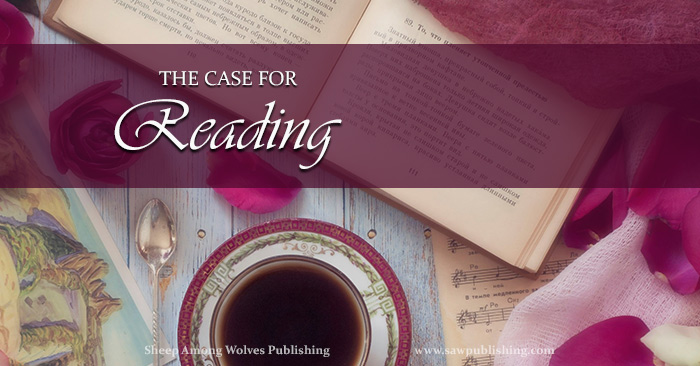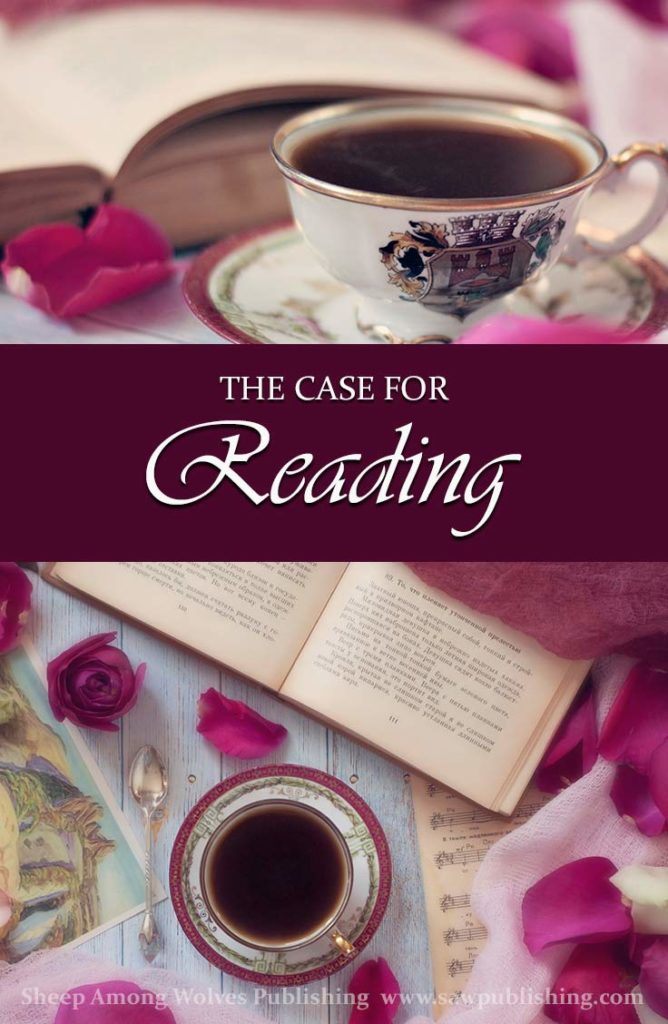The Case for Reading
 How good a case for reading can you actually make?
How good a case for reading can you actually make?
Now, all you reading-enthusiasts, don’t begin screaming things at your computer. It’s a fair question. Society as a whole, is progressively de-valuing reading in our day and age.
According to a 2019 study by Pew Research Center, 27% of Americans admit they haven’t read a single book in the past year. That’s not just haven’t finished a book—it’s haven’t started one, and the study included print, electronic, and audio books.
According to numbers from the same source, this non-reading demographic has risen by almost 10% since 2011.
The case for reading is an increasingly open question. Learning to read—particularly learning to read fluently enough to engage in leisure reading—takes time and effort. Does the work actually pay off? In today’s post, I’d like to take a look at my top three arguments in favour of reading.
 1) Reading Opens the Doors of God’s Word
1) Reading Opens the Doors of God’s Word
There are compelling religious arguments to be made for the existence of many subjects—but probably none that excel this cornerstone of reading: God has given us His Word in a written form.
Reading opens the doors to God’s Word. I think that’s just about the strongest case you can make for it!
Yes, I believe that it is possible for illiterate Christians to receive, treasure, meditate on, and bear fruit from the spoken Word alone. But I also believe that the value of being able to read God’s Word for ourselves is so significant that, even standing alone, it provides a clinching argument in favour of reading.
2) Reading is Something You Will Use Every Day of Your Life
Okay, okay—possibly not on days when you have a fever over 100—or are on a deep-wilderness camping trip—or are stuck in a foreign airport without your phone.
But speaking by and large, reading tops the list of school subject a student keeps in use after graduating. Writing and math probably run a close second, but I think we’ve all spent days where we didn’t actually jot down a single word, or work a single math problem, (even in our heads!)
Learning (or teaching!) reading takes a significant investment of time. But it is time that is paid back a thousandfold—over and over again, throughout a student’s life.
3) Reading is the Gateway to Most Other Subjects
This may sound like overstating the obvious, but if a student can read, they are equipped to learn pretty well every subject ever taught in a classroom—and most subjects ever taught out of one.
(Some exceptions apply—but only a fractional minority!)
If reading is a cornerstone of education, then it would be fair to say that the more strongly a student is equipped to read—the greater the stability of his whole future education becomes.
Runner Up Argument: Reading Is A Lot of Fun!
Okay, I admit that’s subjective. I admit it may or may not represent a majority experience. But it’s my opinion, and I thought I’d share it.
Reading is a lot of fun!
Who doesn’t want to equip their students to have fun? Especially when you can combine it with so many other great attributes at the same time!
My Verdict on the Case for Reading
Reading is worth it! It totally is.
But it’s an art that takes time to learn—and takes time to cultivate. Time, in the 21st century Western world, is at a premium. Do you value reading enough to invest valuable time in it? Do you value reading enough to invest valuable time teaching it?
Do you find the case for reading strong enough to make reading happen?
If you feel like your answer is yes, but you still struggle with students who don’t want to read, see our previous post:

Does age-appropriate reading material really matter? Is reading above your grade level a good thing? Or a bad thing? Or a neutral one?

If you are looking for a pure, elevating, and inspiring example of Christian poetry, “The Second Day of Creation” is for you!

How do you know which poems are actually worth including in your curriculum? Is it enough to say that a poem is “harmless” to your student? Or does it take something more to make poetry worth reading?


YES!! There are so many reasons to read, but these are some of the best! ❤️
Great post, girl 😉
Thanks, Katja!